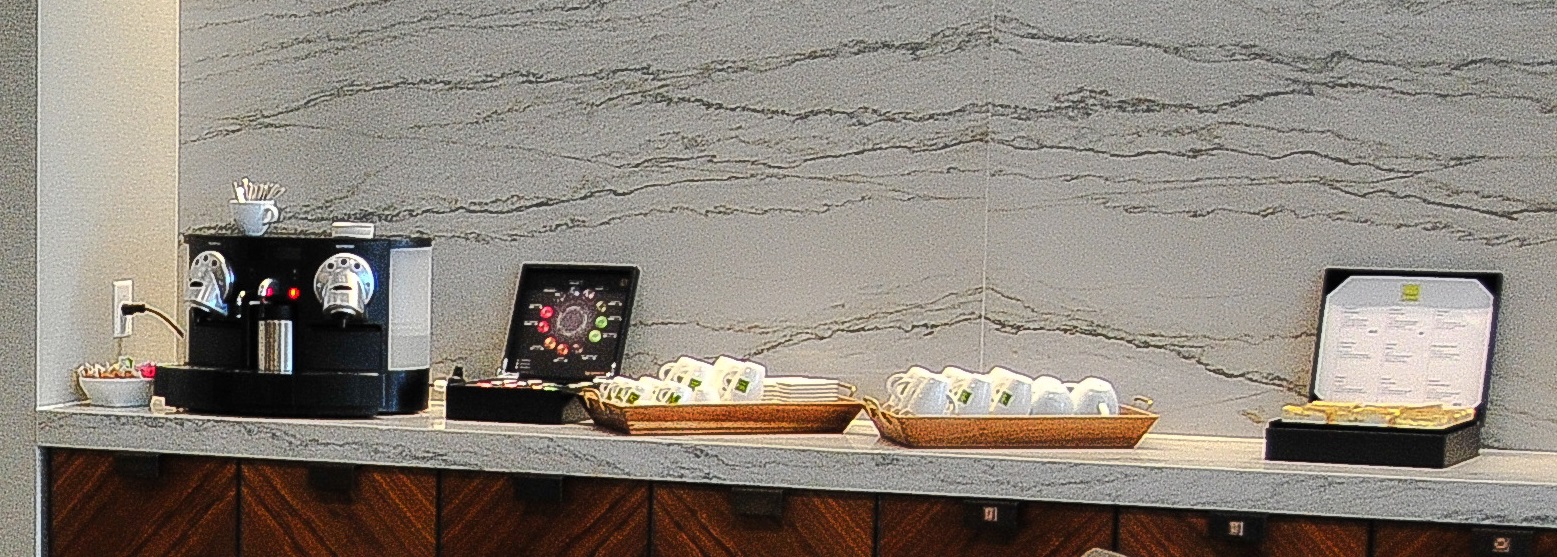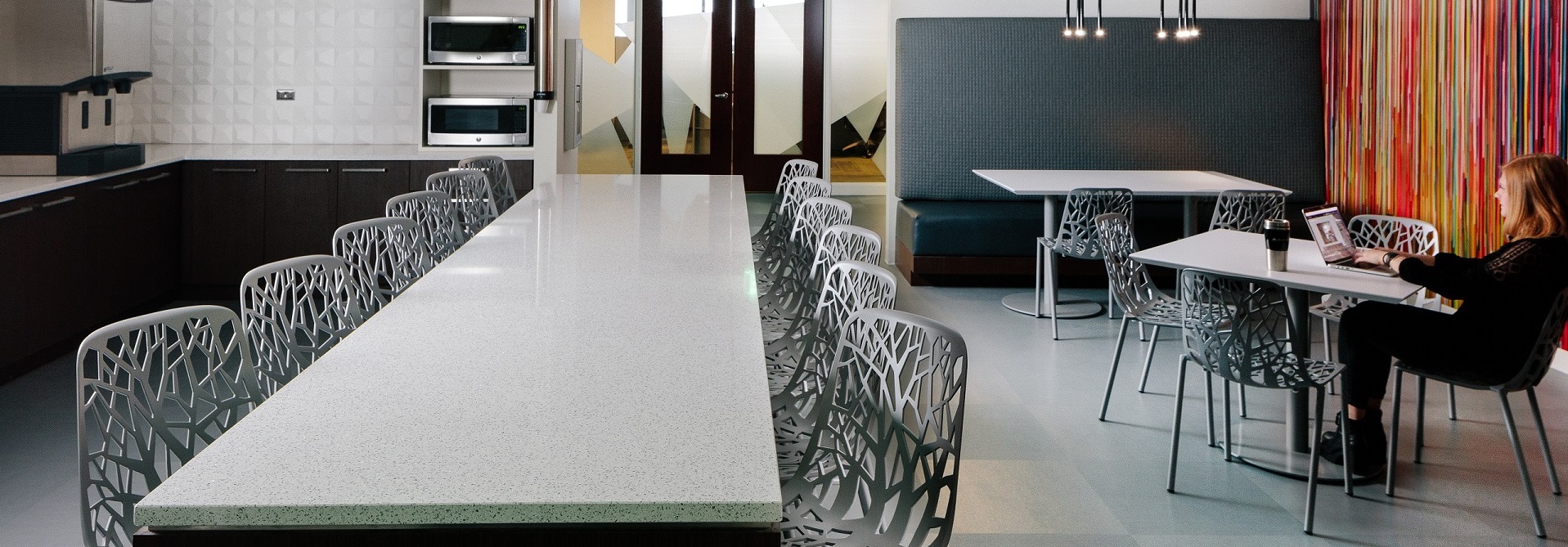I recently completed a survey of AmLaw200 firms asking them about various amenities offered to their employees. Unlike my survey on the value of the C-Suite, where I eventually gathered 118 responses, this time I secured just 17. However, the 17 responses reflect data from a full cross section of the AmLaw200. Consequently, I believe there is something to be learned from that data.
FITNESS CENTERS
We asked all firms whether they offered their employees an on-site fitness center – at least in their headquarters offices. We found that 41% of the respondents provided their employees with this amenity and the average profits per equity partners (PPEP) of the firms that offered this amenity was ~$1.2M. (Contrast with the survey average PPEP of $865K.)
I recently visited White & Case’s fitness center in their new NYC offices. (More here.) According to COO Victor Nunez (and as evidenced during my visit), the center is used by more than 60% of the firm’s employees, averaging 40-45 users per day. Its existence is reflective of the firm’s overall emphasis on wellness as further evidenced by their on-site health clinic.
Irell & Manella’s Los Angeles office also features a fitness center. Per Executive Director Mark Hansen, the fitness center exists to promote employee wellness and balance. The firm believes that having a convenient location in which to get a workout in results in good morale, a healthier mindset, and improved stamina. They also believe it encourages interaction and relationship building among its employees.
Hansen said the firm recently added a personal trainer one day per week. The amenity is so popular that the employees are requesting another day per week of the free service.
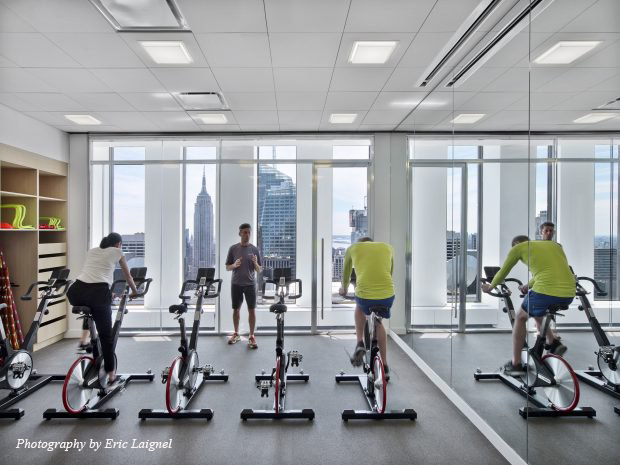
White & Case’s Group Exercise Room
While Irell’s fitness center is not expansive, it is large enough to accommodate full free weights and multiple pieces of cardiovascular equipment. It also includes well-appointed shower and bathroom facilities which can be used not just by gym-goers, but also by those who commute on foot or bike or who come into the office after a day of travel.
The office rent is low enough in the Century City market that Irell considers the use of space a good investment. The Irell facilities staff oversees maintenance and upkeep of the equipment, a towel service provides laundered towels, and the building management provides janitorial service for the center.
MEAL SERVICES
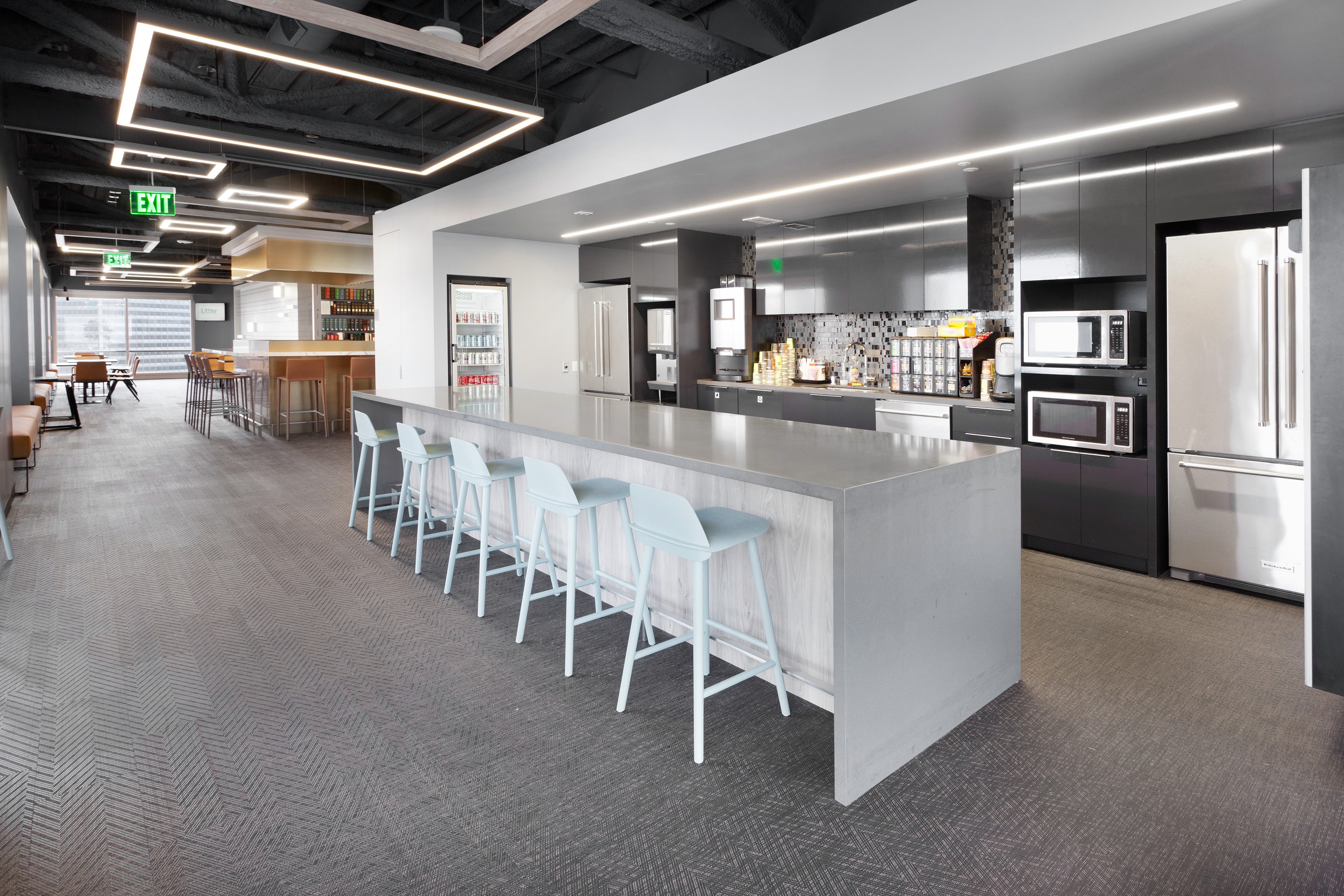
Littler Mendelson’s Kitchen
A much lower percentage of survey respondents (18%) offered their employees a free meal at least once a week. However, a statistical analysis revealed that companies that had a higher PPEP tended to be more likely to provide a meal on any given week. The average PPEP of the meal-providing firms was $1.64M. Compare this again to the average respondent PPEP of $865K.
THE MATH BEHIND FOOD
Let’s do the math to look at why the higher PPEP firms might offer meals.
If a firm bills an attorney out at $500 per hour and the firm can save that attorney thirty minutes per day by eliminating either a Starbucks run in the afternoon or a dash to the deli at lunch, that’s worth $250 to the firm. If the firm can save those thirty minutes once a week, fifty weeks of the year, that’s $12,500 of additional revenue. If the cost of providing that amenity is even as high as $25 per employee per week, the total cost is only $1,250 annually. You might even double this cost to cover the food amenity for non-billers. The net gain is still $10,000 per year PER LAWYER.
Maybe productivity improvements are not the rationale behind a meal program. Perhaps the employees to whom a firm provides a free meal enjoy that meal together and talk about what they are working on for their respective clients. This time might not be billable, however, it might generate an idea on how one attorney’s practice area might be of benefit to an existing client in the other attorney’s practice area.
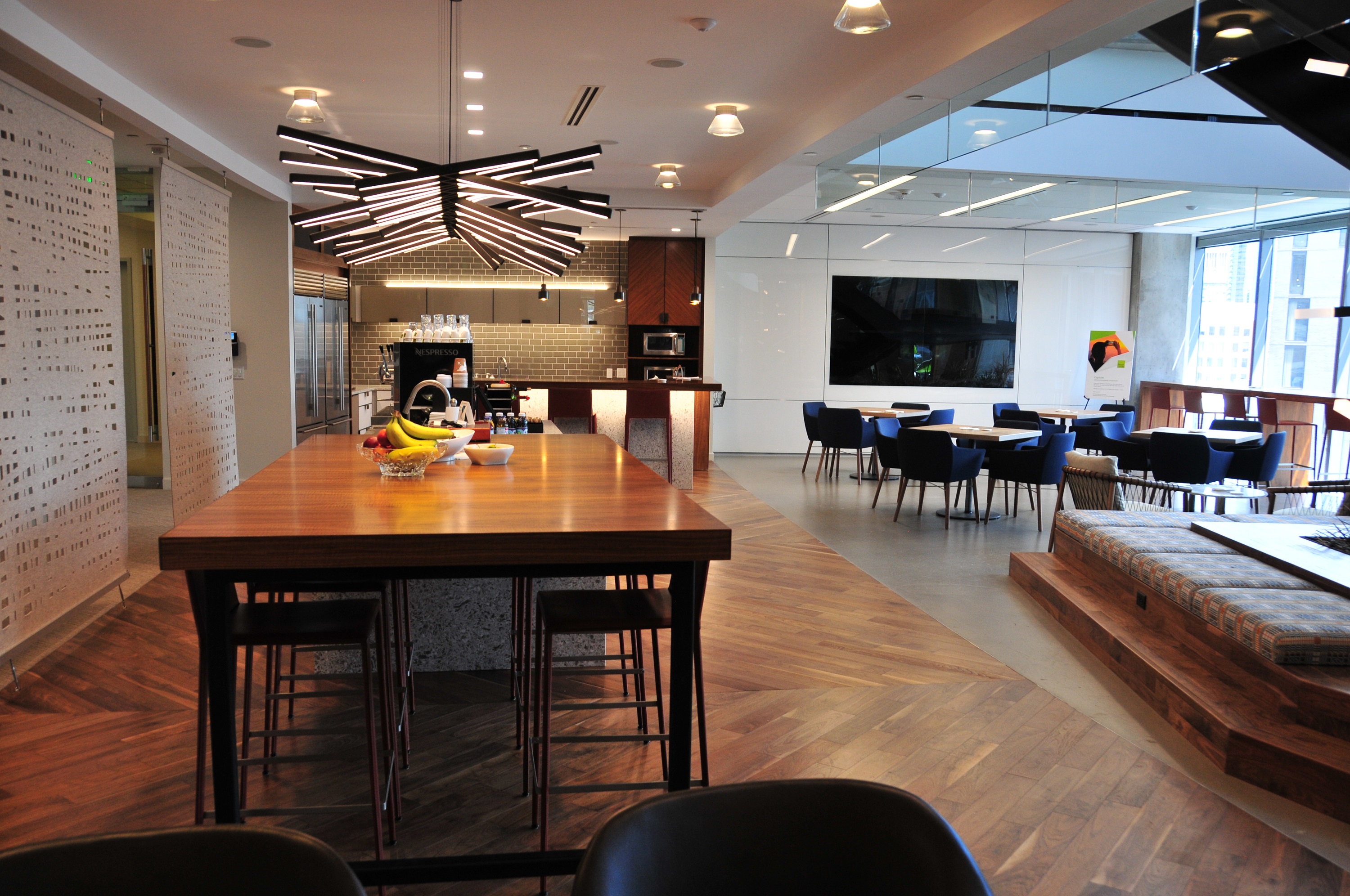
Hogan Lovells’ Kitchen
To that end, Irell & Manella sponsor a catered get-together in their library every week for lawyers. They also sponsor a monthly all-firm breakfast and a monthly all-firm lunch. Irell’s goal is to show their employees appreciation for their work and to encourage interaction.
Other firms do not offer weekly meals but do provide abundant snack and drink options. Firms like Hogan Lovells provide kitchens that would rival the most well-stocked home pantries. Hogan Lovells offers coffees, teas, healthy snacks as well as beer and wine every day. (More here.) Similarly, Irell provides its employees with high-end coffee service in addition to bottled waters and juices. Paul Hastings provides free snacks and beverages to the employees who embraced the new, more open plan found on one floor of its Manhattan offices.
Maybe these higher PPEP firms are onto something.
THE REAL ESTATE ANGLE
Now, let’s bring this back to my favorite topic: real estate. How does a food or fitness amenity affect the amount or configuration of office space required by a firm?
The fitness amenity is usually a small percentage of the firm’s overall office space. And, weekly catered lunches do not necessitate any additional dedicated kitchen/serving space as they can be served from conference rooms or existing breakrooms. However, it is important when building a fitness facility to consider sound insulation as well as floor loading. It would not be productive for your body-building associate to drop his/her 250 lb deadweight bar on a floor not built to handle the load. Other fitness equipment can be very heavy as well so placement requires careful planning. Also, with regard to these amenity spaces, kitchen and locker room plumbing requirements need to be considered in advance.
CONCLUSION
Are fitness and food amenities right for your firm? That is a very firm-specific decision. Hopefully this information gives you some ideas based on the experience of others.
_______________________
Methodology: We surveyed the AmLaw200 and received 17 complete responses: eight from the AmLaw100 and nine from the AmLaw101-200. Average gross revenues of respondents were $428M.
